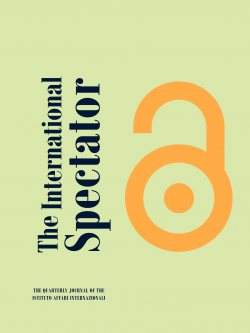Engagement against All Odds? Navigating Member States’ Contestation of EU Policy on Kosovo

Disagreements between European Union (EU) member states constrain the Union’s capacity to manage conflicts such as Kosovo-Serbia. While Kosovo has long received EU support, five EU member states do not recognise its independence. How does the EU manage to work around member states’ vetoes and mitigate contestation? In contrast to previous scholarship, the analysis of the EU enlargement process and visa liberalisation, the Belgrade-Pristina dialogue and the EULEX mission illustrate how institutional, technical and diplomatic solutions have allowed the provision of support to Kosovo, despite internal disagreements. EU member states have delegated to EU institutions the responsibility of overseeing day-to-day conflict management and integration policies concerning Kosovo and Serbia. EU institutions also use technical and constructively ambiguous language to manage conflicts and navigate the absence of political consensus regarding Kosovo’s statehood. Additionally, the EU has fostered diplomatic collaboration with the United States (US) and with actors from the North Atlantic Treaty Organization (NATO) to navigate through the Kosovo-Serbia conflict.
Keywords: EU foreign policy; internal contestation; Kosovo; Serbia; conflict; state-building
-
Dati bibliografici
The International Spectator, Vol. 59, No. 1 (March 2024), p. 19-38 -
Numero
59/1 -
ISBN/ISSN/DOI:
10.1080/03932729.2023.2295893



